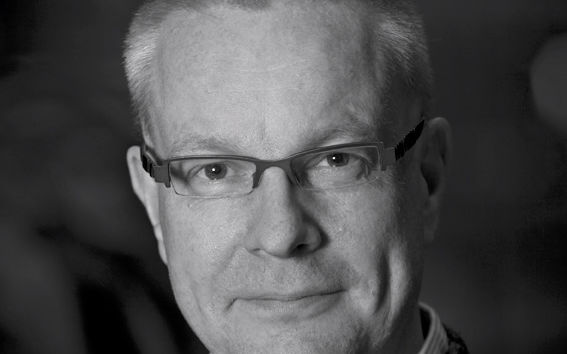Oasis of Radical Wellbeing
Social sustainability in practice.

By Jari Ylitalo, University Lecturer, Department of Production Economics, Aalto University
Are we separate actors or defined by our relationships?
Our attitude towards being in relationships can be viewed in a simplified way as a continuum, at one end of which is a view of people as separate actors. Information is exchanged between them, but the parties remain unchanged. In such a view, relationships and interaction are considered with emphasis on their usefulness. The ability to influence emphasizes ways to influence the thoughts, the mind and the actions of the other party towards a desired direction, which makes others the target of our own actions. In the best case, the relationship is about exchange, and the criteria for the quality of the relationship are the success and balance of the exchange.
At the other end of the continuum is the view of relationships as intrinsically valuable and things that constantly shape us as human beings. According to this view, our existence is deeply based on relations. Our relationships with other people are reciprocal. We influence others with our own actions, and their actions affect us. If we take this reciprocity of relationships seriously, we become responsible in a new way of our own influence on others as well as their influence on us.
Dialogue is often viewed as a reciprocal way of speaking. I would like to expand dialogue into a n entity with perspective of being in relationships, one where we face others in all situations as responsible parties and subjects, not subordinates to our own actions. That way, we strive to help reciprocity to emrge.
The quality of our relationships has a big impact on our lives
In recent years, we have seen more and more research about the essentiality of relationships and relationships between people for our own experiences of meaning and the construction of our identity and wellbeing. The research suggests that the brain tunes to the same frequency between the parties in a high-quality interaction.
So, doing good for others has been found to increase our own wellbeing. And on the other hand, feelings and doubts about unworthiness and not belonging worry us. Exclusion has been found to have deep and long-lasting harmful effects on people's wellbeing and their experience of meaningfulness.
The pandemic expressively brought out these disadvantages of isolation. Online connections lack a human encounter, even if things are taken care of. The risk is that without living human interaction, our communities will decay.
We are always parties in our relationships – in our family, student communities, work teams, groups of friends and hobby circles. The practices of interaction and common operating methods are largely routine for us. We know what the right way to act is, and we often know how to do it automatically. The culture of the community influences and guides our behaviour, but while acting on it, we strengthen this very same culture. That does not make us less responsible of the kind of traces our own actions leave on our culture and relationships.
As I mentioned, I have been interested in the very basic questions, criteria and mechanisms that determine the quality of our own interactions. But what are the essential moments when our relationships are constructed? I want to argue that the moments when we meet each other face to face are the moments of truth in our relationships. They define our relationships in the future.
In working relationships, encounters are often related to handling a specific issue, and the quality of the encounter can be determined by how this is done. This can be called an issue imprint of the encounter. So, to put it simply: did it get done or didn't it get done?
Encounters between people are also always emotional, even if we don't always recognize them as such. An encounter can leave us feeling better than we were before the encounter. On the other hand, our encounter can be emotionally negative if, for one reason or another, our interaction is not successful in a way that values the other. This can be called the emotional imprint of the encounter. In short: is there a feeling of pride or a positive feeling?
Some believe that the most important thing is to get things done and that feelings don't matter. But they are always there, whether we like it or not. The experience creates an expectation value for the next encounter.
A negative expectation value can ruin even the day before the meeting. On the other hand, a positive expectation value at best increases our willingness to bring our own contribution openly. It has been found that if we are free to choose, we prefer to work with people with whom we leave a positive emotional impression, even if there are gaps in the issue. We often remember the people we have met for what it was like with them, not so much what we delivered. At the same time, encounters build a story about us; about what others think it's like to work with us.
What can I do differently or more?
First, it would be good to pay attention to your own encounters in everyday life, especially with people close to you. How do I speak, how do I face, am I interested in what the other person is like, and if I am, does the other person experience this interest in the intended way? It is equally important to consider others in everyday situations. Do I say good morning to a colleague, do I greet the cashier at a local store, do I thank the bus driver for the ride, do I hold the door open for the person coming after me, do I give positive feedback about the service when there is a reason, do I make eye contact when I meet others, do I smile at others? Things like this used to be called good manners, and I think it's still necessary to remember them. Giving a plus sign in everyday encounters helps to build a common culture; it is good for us. The minimum goal could be to not ruin another person’s day.
I know that the flip side on the coin are your own resources, your mental model and emotional state – you cannot always be bothered, remember to notice or to care. Sometimes it spills over, something wrong is said and strong reactions may follow. Even if you try to leave others on the positive side, it just doesn't always work. We are human and it is understandable. Maybe it is possible to bring up the issue later, to apologize and even to ask for forgiveness.
Taking responsibility for one's own behaviour often takes a lot. I think it is important to strengthen interaction routines that are based on noticing and taking others into account. In our time we easily get used to our own bubble, where we don't notice others from behind our handsets and cell phone feeds. When we get used to it, the threshold for meetings increases, and our sensitivity to notice others may wear off.
In my opinion, seeing relationships and other people is something worth striving for. There is nothing new about that. But in our time, I think it's worth their importance. Every encounter matters and we never know how meaningful a friendly smile, a comment or a positive moment can be to another person. It is worth striving for face-to-face encounters whenever possible. Our culture is built on the quality of these encounters and relationships.

Social sustainability in practice.
High-quality connections can help us develop and grow as humans and connect to the communities and organisations around us.